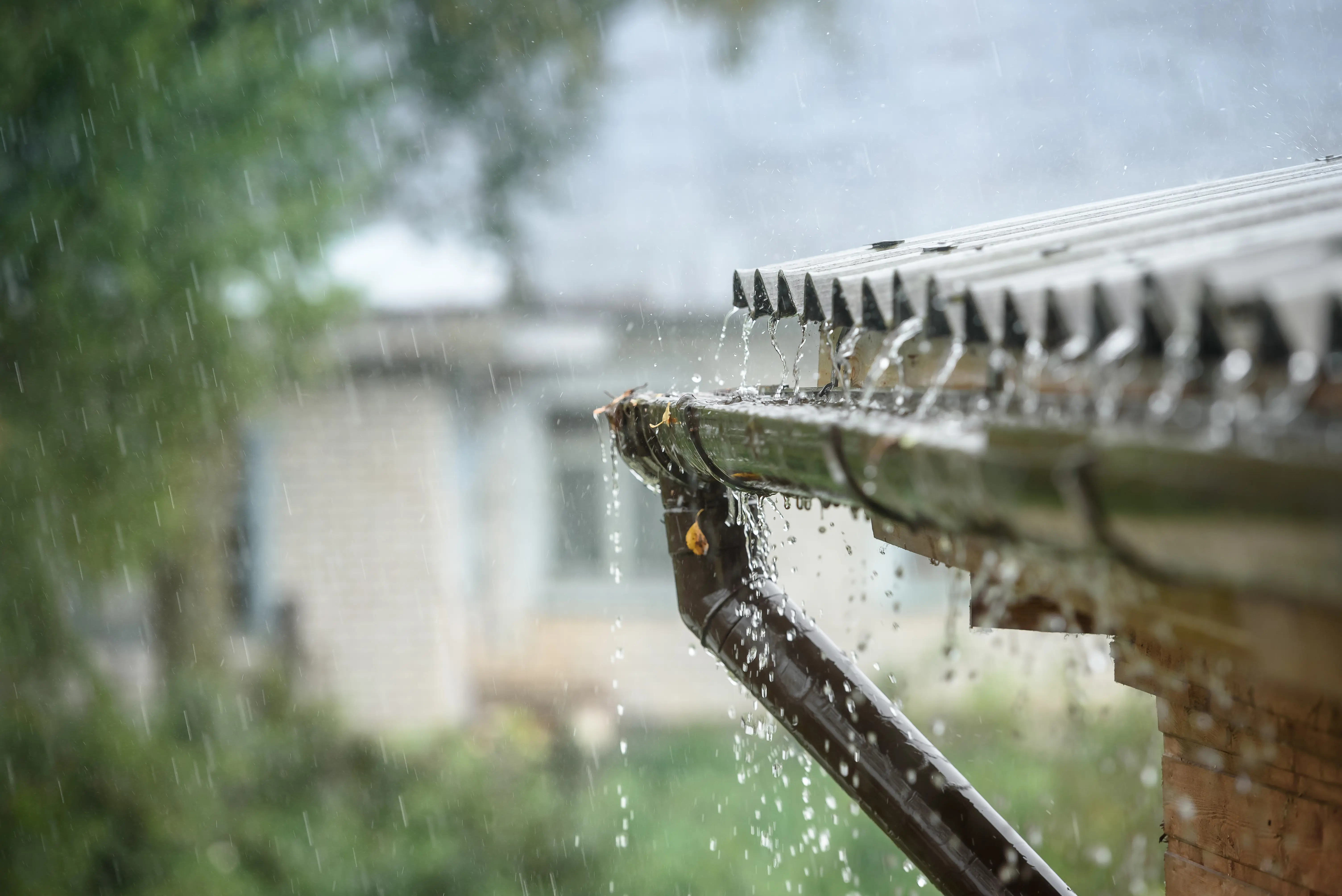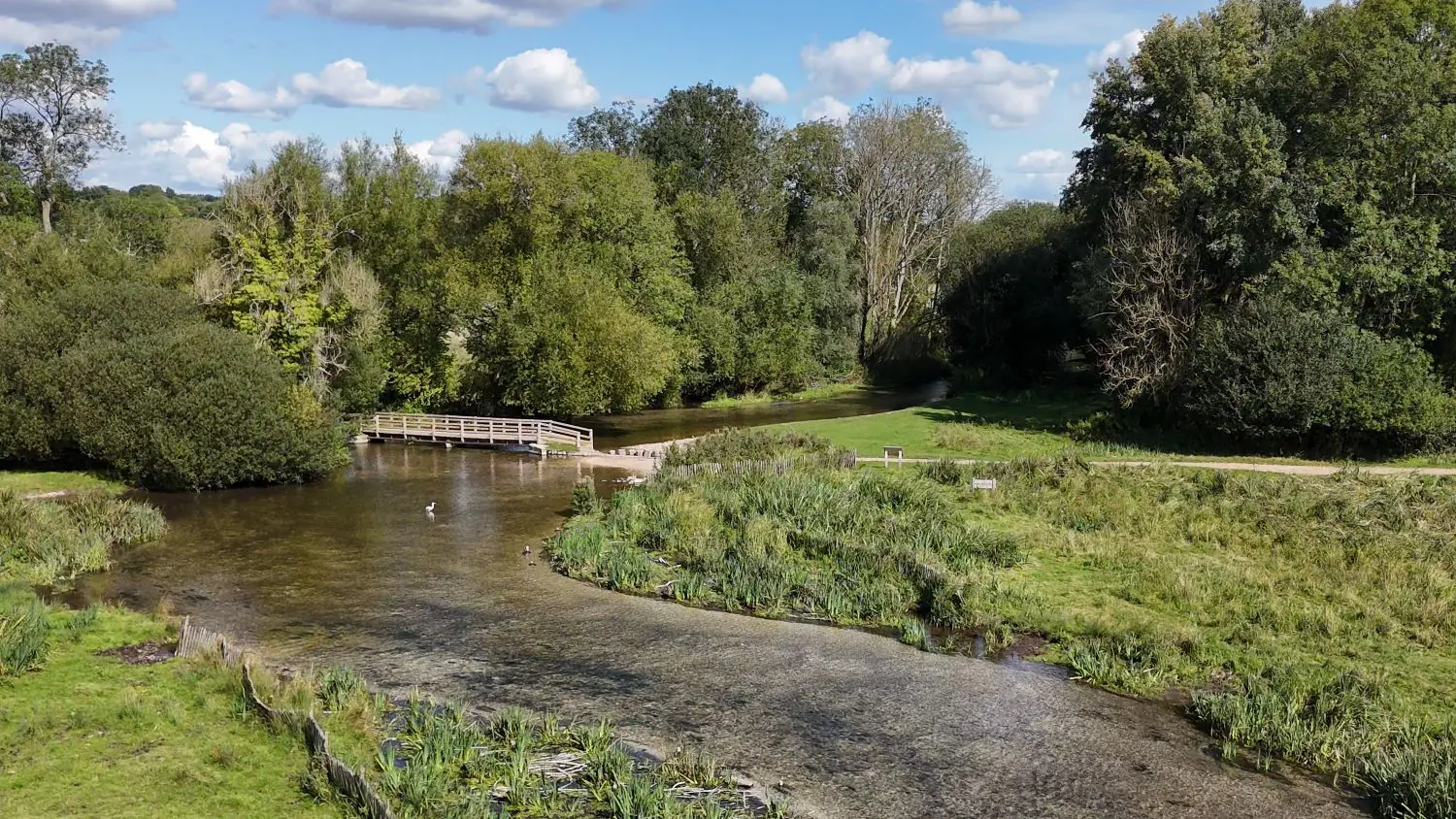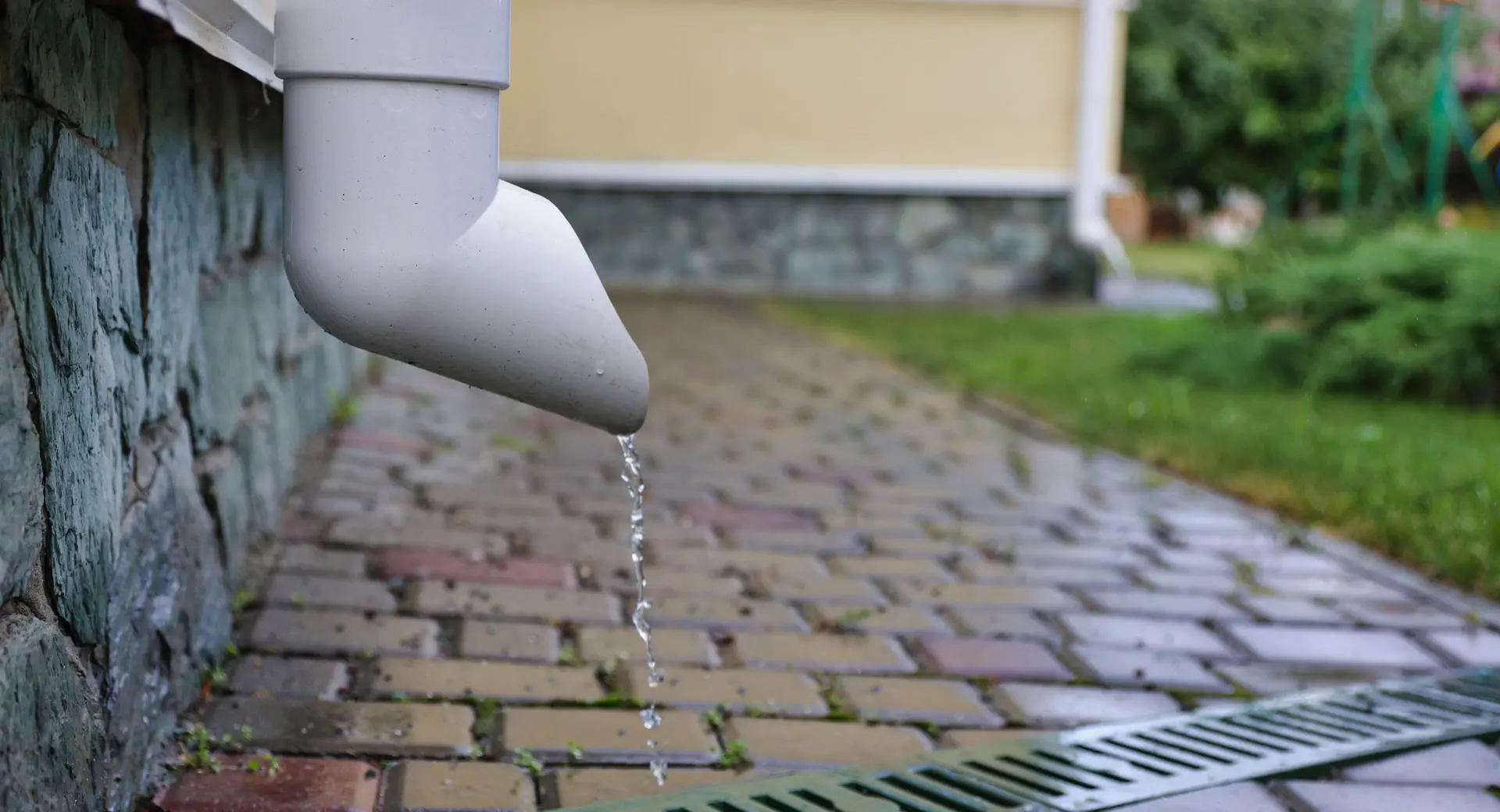Illegal connections and faulty plumbing in your home
Illegal connections happen when appliances or plumbing in your home or business are connected to the wrong sewer, resulting in pollution. Learn more about the impact of these misconnections below.
Where does my water go?
Until the 1960s, most houses were fitted with drains that lead into a combined sewer, mixing wastewater from toilets, showers and sinks with rainwater (surface water) from roofs and driveways. Many buildings still have a combined sewer system, but more modern buildings have separate drainage systems — one for wastewater and one for surface water.
Wastewater travels through sewers to our treatment works, where it’s cleaned before being safely returned to the environment. Surface water — clean rainwater — flows through surface water sewers directly into local rivers, streams or the sea, without needing treatment.
Keeping these drainage systems separate helps reduce pressure on our treatment works during heavy rain and limits the need for storm overflow releases. But misconnected pipes can send the wrong water to the wrong place, harming the environment.
What is an illegal connection?
Illegal connections can happen during work to extend or improve a house, when a new house is built, or simply when a new appliance is plumbed in. Pipes can be misconnected in two ways:
- If a waste pipe (for example, your dishwasher or toilet) is connected to a surface sewer this can contaminate clean surface water, polluting local waterways and impacting bathing water quality.
- If a surface water pipe (for example, a gutter collecting rain water) is connected to a foul sewer, this can overwhelm wastewater treatment sites during heavy rain as the system is unable to cope with the excessive water.
It's difficult to estimate the number of properties with misconnected pipes and many people don't ever know the pipes in their home have been wrongly connected.
It’s important to note that it is unlawful to discharge foul water into a surface water drainage system where public sewers have been set up separately for foul water and surface water, as outlined in Section 109 of the Water Industry Act 1991.
A UK Water Industry report suggests around 140,000 properties have faulty plumbing, although in some areas up to one in five properties are illegally connected. The nationwide total could be more than 500,000.

How do illegally connected pipes cause pollution?
If any of your plumbing or waste pipes drain to a surface water sewer, the wastewater will pollute local watercourses.
Similarly, if clean water drains are misconnected, they can overload the foul sewer and our wastewater treatment sites, leading to flooding.

Who is responsible for Illegal connections?
The homeowner is responsible for pipework on their property up to where it joins the public sewer. This includes making sure that there are no illegal connections.
If you're unsure about what to do, you can contact us for advice. Or, you can get help from an approved plumber.
If you're building a house extension, a new home or a commercial building, or simply making changes to your existing drainage, you may need a new connection to our sewer network.

What we’re doing about illegal connections?
We're working together with local councils and the Environment Agency to find illegal connections and put them right. Most of the time they're on private land, so we have to get permission from the home or land owner to rectify them.
You can help by making sure that your plumbing is connected properly. Water UK have a useful guide on how to check for illegal connections.
If you're connected to a combined sewer, there's no risk of an illegal misconnection. However, we're looking at ways to slow the flow of water into our combine sewer system. Where possible, we're working with home and business owners to reconnect surface water pipes from the combined sewer to the surface water sewer. The decreases the amount of rainwater in the combined sewer and helps prevent storm overflow releases.
We’ve updated our Surface Water Management Policy to stop new developers from connecting surface water pipes into foul sewers and limit the number of surface water connections to the combined sewer. These will only be allowed under exceptional circumstances.
Although this won’t stop illegal connections, the policy supports our work to separate rainwater from wastewater to reduce the number of storm overflows and flooding incidents.
Developers make applications to connect to our wastewater network via a sewer connection application.
You may also be interested in...
Did you find the information you are looking for?






